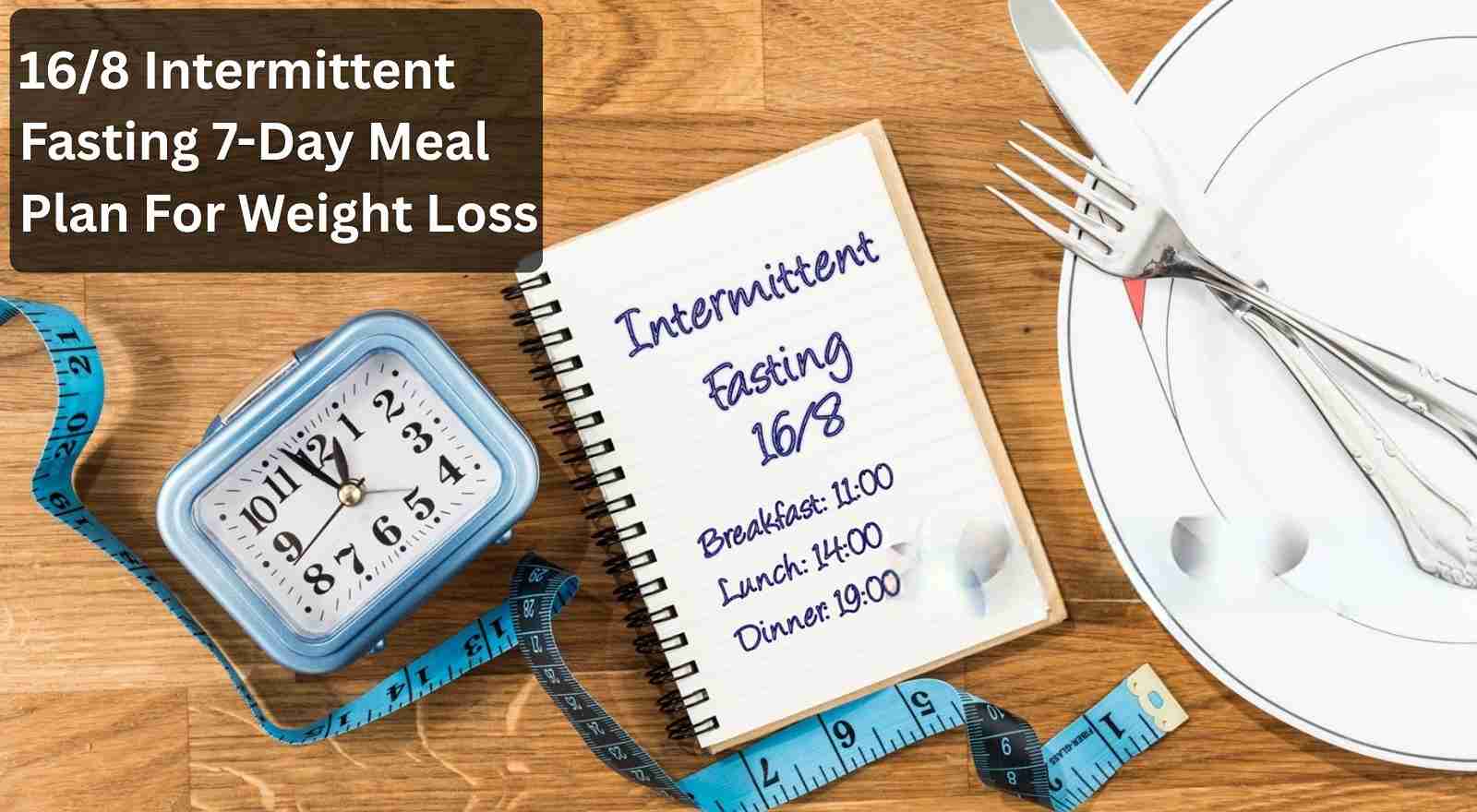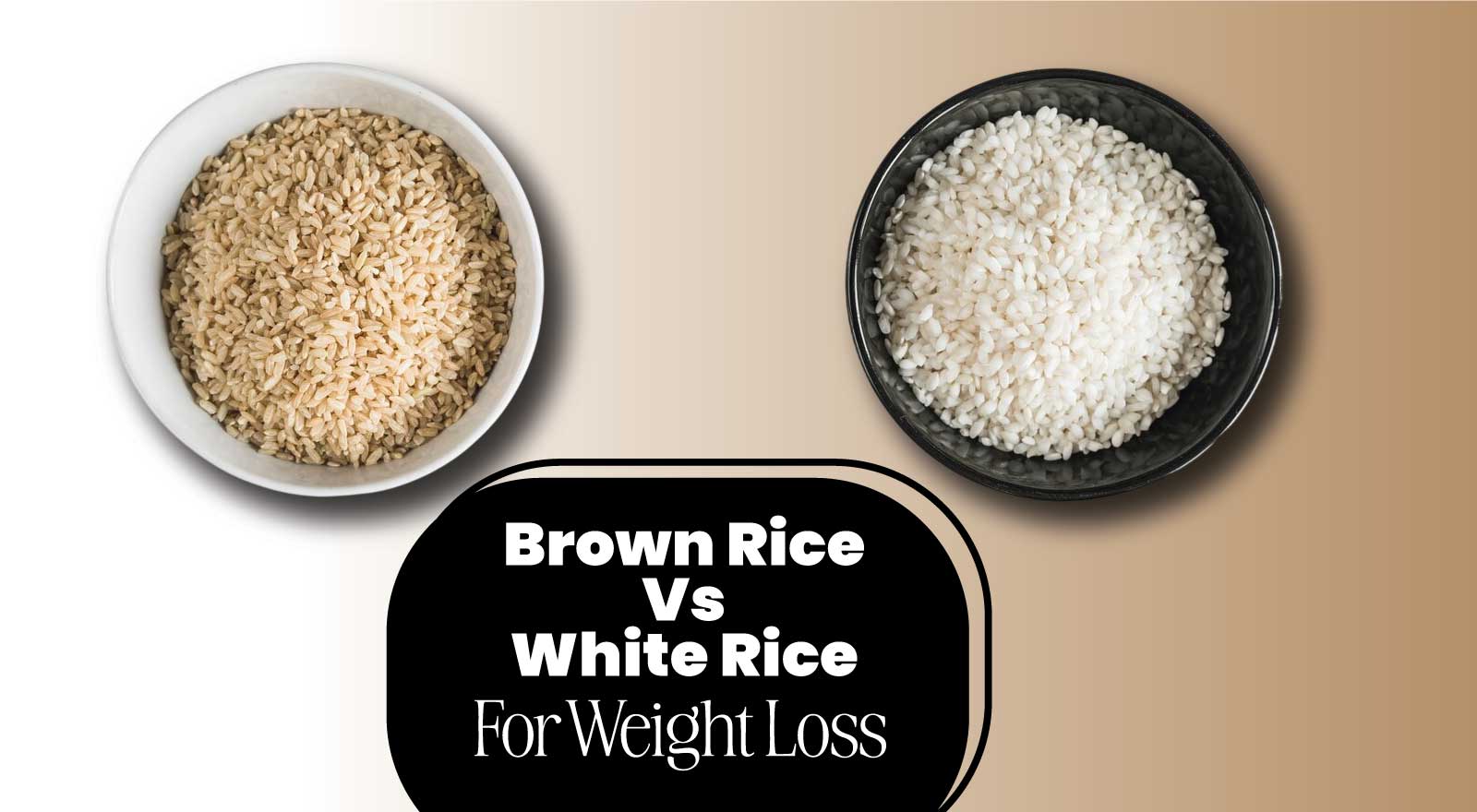Are you tired of restrictive and fad diets that promise quick calorie loss but leave you feeling worse in the long run? Do you notice your weight going up and down despite your best efforts to keep it stable? If so, you might be experiencing the effects of yo-yo dieting. Yo-yo dieting, also called weight cycling, is a pattern of rapid weight loss followed by weight regain, often due to strict or fad diets that are hard to maintain. This cycle can seem like a never-ending struggle, but it has real health implications. Understanding these impacts is recommended to protect your wellness, but breaking free from the cycle is possible.
But exactly which practical, sustainable tips help develop balanced eating habits in the yo-yo effect and achieve lasting health? This blog explores the major side effects of yo-yo dieting on your health, from metabolic slowdown to heart risks, and outlines a yo-yo diet plan to show how the cycle takes shape. So, keep reading!
Table Of Contents
1. What Is Yo-Yo Dieting?
2. Is Yo-Yo Dieting Unhealthy? 5 Side Effects
3. What Is The Yo-Yo Diet Plan?
4. How To Break Yo-Yo Diet Cycle? 6 Tips
5. Expert’s Advice
6. The Final Say
7. FAQs
8. References
What Is Yo-Yo Dieting?
Yo-yo dieting is a cyclical pattern of weight loss and regain that occurs when individuals repeatedly adopt restrictive diets to shed pounds quickly. These diets often involve severe calorie restriction, limiting healthy foods for weight loss, or following fad diets that promise rapid results. While initial weight loss may be achieved, the unsustainable nature of these diets makes it difficult to maintain the results.
As a result, people often return to their previous eating habits, causing excessive weight regain and sometimes even exceeding their original weight. This cycle can repeat itself multiple times, causing significant fluctuations in weight.
Try ToneOp Fit's Balanced Diet Weight Loss Plan, which emphasises nutrient-rich foods like fruits, vegetables, nuts, and seeds for sustainable weight loss. The plan features a personalised diet tailored to your specific needs and location, ensuring you receive balanced nutrition without additional supplements. Access to over 40,000 healthy recipes allows you to enjoy many delicious and nutritious meals that support your weight loss goals.
Also Read: You Lose Weight Fast Without Exercise Naturally
Is Yo-Yo Dieting Unhealthy? 5 Side Effects

Yo-yo dieting, a repetitive cycle of weight loss and regain, is a common approach to weight management. While it seems like a quick fix, it can have serious health consequences. Let's discuss and understand these five potential side effects of yo-yo dieting:
1. Increases Body Fat And Reduces Muscle Mass
Yo-yo dieting often increases body fat percentage over time, even if total weight remains similar. In the initial rapid weight-loss phase, the body loses muscle and fat, especially without enough protein or strength training to preserve muscle mass. When weight is regained, it’s typically stored as fat rather than muscle, raising the body fat percentage.
This shift can hinder metabolism, as muscle tissue burns more calories than fat. Over multiple cycles, the body becomes less efficient at maintaining lean muscle, making it harder to achieve a balanced body composition and increasing health risks.
2. Excessively Slows Metabolism
Each cycle of restrictive dieting triggers the body’s defence mechanism, slowing metabolism to conserve energy. This metabolic adaptation occurs because the body interprets the calorie restriction as a period of food scarcity, making it more challenging to lose weight with each successive cycle.
A slower metabolism makes weight loss harder and also makes it easier to regain weight in the form of fat, further exacerbating the body’s fat-to-muscle ratio. This causes permanently reduced metabolic rate, making sustainable weight loss difficult and increasing the weight regain.
Consider ToneOp Fit's Home Workout Plan for personalised workout routines that complement your caffeine metabolism. Choose from bodyweight exercises, HIIT workouts for a quick sweat session, or targeted strength training to build muscle and accelerate your metabolism.
3. Increases Risk Of Cardiovascular Disease
Weight cycling, or repeatedly losing and regaining weight, increases the risk of heart disease. Science shows that frequent fluctuations in weight can lead to elevated cholesterol levels, higher blood pressure, and increased insulin resistance, all of which are risk factors for cardiovascular disease.
The stress of weight changes on the heart and blood vessels can be more harmful than maintaining a steady but higher weight. This repeated strain on the cardiovascular system raises the likelihood of heart problems, making yo-yo dieting particularly dangerous for heart health.
Also Read: 8 Cardio-Boosting Exercises for Heart Health - ToneOpFit
4. Weakens Immune System
The continuous cycle of dieting and weight regain can harm the immune system. Yo-yo dieting can result in malnutrition, nutritional deficiencies, chronic inflammation, and heightened oxidative stress, weakening immune defences. The body may struggle to fend off infections and illnesses without adequate nutrition.
The immune system’s ability to respond effectively is compromised, increasing susceptibility to seasonal illnesses, longer recovery times, and even chronic conditions, adding yet another layer of risk to the cycle.
Try ToneOp Care’s Spirulina Powder. This nutrient-dense superfood can help increase haemoglobin levels, boost your immune system, and significantly boost energy. It’s a vegan, gluten-free option packed with antioxidants and nutrients, making it a popular choice even among astronauts.
5. Gives Emotional And Psychological Toll
The psychological effects of weight cycling are profound and often damaging. The repeated pattern of restrictive dieting followed by weight regain can lead to persistent feelings of guilt, shame, and frustration. This emotional toll can foster a negative relationship between food and body image, promoting unhealthy eating behaviours like binge eating or severe restriction.
With time, these patterns may show more severe mental health issues, like excessive anxiety, depression, or eating disorders. The constant struggle and emotional distress associated with yo-yo dieting make it hard to adopt balanced habits, often trapping people into an unhealthy dieting cycle that affects both mental and physical wellness.
Also Read: Weight Loss Tip For Women With Effective Strategies
What Is The Yo-Yo Diet Plan?
The yo-yo diet plan follows a frustrating cycle marked by strict dietary restrictions and temporary weight loss, ultimately causing regaining weight and emotional stress. Note these steps involved in each stage in this repetitive yo-yo cycle:
1. Initial Motivation & Strict Diet
- Beginning with High Motivation: Many start with solid motivation and set ambitious weight-loss goals, including various weight-loss fibre foods and nutrients.
- Adopting Restrictive Diets: This includes drastic calorie restriction (800–1200 calories daily) or cutting out whole food groups (e.g., no carbs or fats). Fad diets like detox cleanses or liquid diets are standard, although unsustainable.
Try ToneOp Care's Wheat Grass Powder for a natural boost to your health. Packed with essential nutrients and antioxidants, this vegan and gluten-free powder aids in detoxification, weight management, and digestive health. Enjoy the benefits of 100% natural wheat grass in every serving.
2. Rapid Weight Loss Phase
- Significant, Temporary Weight Loss: A severe calorie deficit leads to fast weight loss, primarily from water and muscle rather than fat.
- Side Effects: Dieters may experience low energy, irritability, and intense cravings, making the diet increasingly challenging.
3. Diet Fatigue & Loss Of Motivation
- Difficulty Sustaining the Diet: The restrictive nature of these diets often leads to fatigue and loss of motivation.
- Breaking the Diet: Social settings, stress, or boredom can prompt individuals to deviate from the diet.
ToneOp’s Intermittent Fasting Weight Loss Plan lets you choose from different fasting schedules, ranging from 8 to 20 hours, to suit your routine. If you have trouble adjusting to fasting, their diet coach can help you get personalised fasting schedules, eating windows, guided nutritional support, and science-backed strategies to stay on track. This makes it a healthy and effective way to lose weight without compromising taste.
4. Bingeing Or Returning To Old Habits
- Overeating or Reverting to Old Patterns: After prolonged restriction, individuals may binge or revert to their previous diet, especially with high-calorie, processed foods.
- Weight Regain: Rapid weight regain often occurs, sometimes even exceeding the initial weight, due to muscle loss and a slowed metabolism.
5. Frustration & Guilt
- Emotional Consequences: Many experience frustration and guilt, leading to emotional eating.
- Restarting the Cycle: After some time, individuals may attempt the cycle again, maintaining the unhealthy pattern.
The yo-yo diet cycle hinders sustainable weight management and can lead to long-term health effects like slowed metabolism and increased stress. Focusing on consistent and sustainable eating habits can help avoid this damaging cycle.
Also Read: 7 Health And Fitness Tips For Weight Loss Results
How To Break Yo-Yo Diet Cycle? 6 Tips
Try implementing these six strategies to develop sustainable healthy habits, achieve long-term weight management, and improve your wellness:
1. Embrace A Balanced Nutritional Approach
To break the yo-yo diet cycle, adopt a balanced, flexible diet. Prioritise whole foods like fresh fruits, vegetables, lean proteins (like chicken, fish, and beans), whole grains (like brown rice and quality quinoa), and healthy fats (like avocados and nuts). Practice moderation, allowing yourself to enjoy occasional treats without guilt or deprivation.
2. Prioritise Consistency Over Perfection
Strive for consistency rather than perfection. Small, consistent steps towards health are more effective than drastic measures. Aim to make healthy choices most of the time, but keep yourself from beating yourself up if you occasionally slip up. Accept setbacks as part of the journey and refocus on your goals.
Try ToneOp Fit's comprehensive Diet+Fitness Weight Loss Plan, which offers the best of both worlds: delicious, easy-to-follow recipes and engaging live workout sessions. You'll achieve your goals and feel your best with personalised guidance from a dedicated fitness coach. Enjoy the convenience of home workouts, a vast library of pre-recorded videos, and 24/7 support.
3. Exercise For Wellness, Not Punishment
View exercise as a tool for daily health and happiness, not as punishment for eating. Choose activities you enjoy, like backwards walking, dancing, swimming, or strength training. Regular exercise benefits your mood, reduces stress, improves cardiovascular health, strengthens muscles and bones, and can even boost your energy levels. Aim for nearly 30 minutes of moderate-intensity exercise most days of the week.
Also Read: 7 Top Foods For Muscle Recovery And Growth | ToneOp Fit
4. Address Emotional Eating
Identify and address emotional triggers that cause overeating. Techniques like mindfulness, journaling, or therapy can help you manage stress, anxiety, boredom, and other emotions without resorting to food. When you feel emotional, try activities like walking, listening to music, or spending quality days with loved ones. So, develop healthier coping mechanisms to break the emotional eating and wellness cycle.
5. Practice Mindful Eating
Pay full attention to the eating experience. Tune into your body's hunger and fullness cues. Savour your food, eat slowly, and enjoy each bite. This can help prevent overeating and undereating and prevent types of malnutrition diseases. Avoid distractions like TV or phones while eating, and focus on your food's taste, smell, and texture. By practising mindful eating, you can develop a healthier bond with food and make more conscious choices.
6. Prioritise Holistic Health
Shift your focus from weight loss to holistic wellness. Set goals that improve your energy levels, fitness, mood, and body image. A holistic approach to health leads to sustainable, long-term results. Remember, true health is more than just a number on the scale. It's about feeling good physically, mentally, and emotionally.
Also Read: 8 Ways To Amp Up Fitness Motivation And Tips
Dietitian’s Recommendation
I strongly recommend avoiding yo-yo dieting, as it disrupts your metabolism and emotional well-being. Instead, focus on long-term, sustainable habits that nourish your body. Prioritise balanced meals with whole foods, including lean proteins, healthy fats, and complex carbs. Avoid extreme restrictions or fad diets, which often lead to weight regain and frustration.
Consistency is vital: aim for gradual weight loss, exercise regularly, and practice mindful eating to tune into hunger and fullness cues. A healthy, steady approach supports your long-term goals without the harmful effects of fluctuating weight.
Dt. Akshata Gandevikar
The Final Say
While yo-yo dieting might seem like a quick fix, it's necessary to recognise its long-term consequences for physical and mental health. Repeated cycles of calorie gain and loss can lead to metabolic disorders, increased risk of chronic diseases, and adverse psychological effects. By understanding the underlying causes and adopting sustainable strategies, it's possible to break free from this cycle and achieve lasting weight management. Slow and stable progress is key to a healthier and happier you.
FAQs
1. What is the yo-yo effect of intermittent fasting?
The yo-yo effect in intermittent fasting refers to the cycle of weight loss and excessive gain that can occur when people alternate between periods of strict fasting and overeating. This pattern can disrupt the body's metabolism, leading to weight gain.
2. Is it harder to lose weight after yo-yo dieting?
Yes, yo-yo dieting can make it more challenging to lose weight in the future. Each cycle of weight loss plus regain causes changes in the body's metabolism, making it harder to burn calories and more accessible to store fat. Also, repeated weight fluctuations can weaken the body's ability to regulate satiety hormones, causing increased overeating.
3. What are the long-term medical risks of yo-yo dieting?
Yo-yo dieting increases the heart diseases, high blood pressure, and cholesterol issues. It also weakens the immune system, contributes to muscle loss, and increases fat storage. In the long term, this cycle of weight gain and loss causes metabolic issues and increases the risk of developing diabetes condition or cardiovascular disease.
4. What is a healthy alternative to yo-yo dieting?
A healthy alternative involves balanced, nutrient-rich meals, moderate portion control, and regular physical activity. Instead of drastic calorie cuts, aim for gradual, sustainable weight loss. Prioritise lean proteins and complex carbohydrates, and avoid eliminating entire food groups. So, listen to hunger cues, allowing for occasional indulgences to prevent feelings of deprivation.
5. Can yo-yo dieting lead to weight gain over time?
Yes, frequent cycles of losing and regaining weight can increase body fat over time. Each time you regain weight, it’s usually more fat than muscle. Over multiple cycles, this increases your body fat percentage, even if your weight stays the same or increases slightly, making it harder to maintain a healthy weight long-term.
6. Can you break free from yo-yo dieting?
Yes, breaking the cycle of yo-yo dieting involves adopting a sustainable, balanced approach to eating and exercise. Focus on long-term changes, avoid restrictive diets, practice mindful eating, do regular physical activity and address emotional eating to avoid triggers. By shifting your mindset from quick fixes to sustainable health, you can maintain your progress without falling into the dieting cycle.
References
- https://www.webmd.com/diet/ss/slideshow-diet-yo-yo-diet-effect
- https://www.trifectanutrition.com/blog/yo-yo-dieting-10-ways-to-break-the-cycle?srsltid=AfmBOoqkJu4GIpO84Wz9WBE_ddpP_sgI4Sm-PO2Fa3OR1jorpUBT-feT
- https://www.forbes.com/health/nutrition/diet/yo-yo-dieting/
About ToneOp Fit
ToneOp Fit is a platform dedicated to improving and maintaining good health through a comprehensive range of goal-oriented health plans with up to 3 Coach support. With a range of Weight Management, Medical Condition, Detox Plans, and Face Yoga Plans, the app also provides premium health trackers, recipes and health content. Get customised diet, fitness, naturopathy & yoga plans and transform yourself with ToneOp.








































